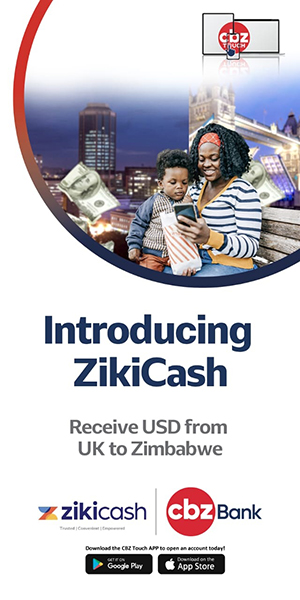THE Reserve Bank of Zimbabwe (RBZ) has taken a unique approach to address the country’s monetary challenges in an environment characterized by hyperinflation and economic instability.
Zimbabwe is embracing a digital currency backed by an age-old asset: gold bullion at a time some market analysts were hoping the central bank would adopt cryptocurrencies like Bitcoin or Ethereum.
The move aims to provide citizens with a secure means of exchange and a store of value amidst the country’s volatile economic landscape. While sceptics question the viability of gold as an investment in the digital age, its historical resilience and recent performance make a compelling case for its inclusion in diversified portfolios.
The rise of Zimbabwe’s digital gold tokens
Zimbabwe’s central bank is launching digital tokens that represent ownership stakes in gold bullion held within its vaults. These tokens utilise blockchain technology and can be easily traded through online accounts, offering individuals a means of secure and efficient transactions. The introduction of these gold-backed digital tokens is intended to facilitate person-to-person (P2P) and person-to-business (P2B) transactions while preserving the value and stability of the underlying asset.
The introduction of digital gold tokens provides Zimbabwean citizens with a tangible and reliable alternative to their rapidly depreciating national currency. Gold’s long-standing reputation as a store of value and the technological advancements of blockchain offers an innovative solution to address the country’s economic challenges.
Gold’s enduring appeal in the digital age
Despite the modern advancements in the financial world, gold continues to play a significant role as an asset class. While its economic significance from ancient times has diminished, its appeal as a diversification tool remains strong. Moreover, Bitcoin is growing in dominance on a global scale, and this is especially the case in the online world, whether it be used to buy real estate or play games at some of the best online casinos. However, the unique value proposition of gold, coupled with the stability it offers, makes it a worthy asset for inclusion in diversified portfolios alongside the rising popularity of cryptocurrencies like Bitcoin.
The resilience of gold amidst economic turmoil
Over the past few years, gold has demonstrated its resilience and served as a safe haven during times of crisis. Amidst the ongoing COVID-19 pandemic, gold prices have surged by a third in dollar terms, outperforming other traditional assets. Even with rising real interest rates, which would typically exert downward pressure on gold, the precious metal has remained resilient, showcasing its ability to retain value across different currencies.
The Zimbabwean perspective: A testament to gold’s relevance
For Zimbabwean citizens, gold-backed digital tokens present an attractive alternative to their troubled national currency. The country has experienced several currency collapses over the years, leading to hyperinflation and economic instability. The introduction of digital gold tokens offers citizens a chance to access a stable asset through a secure digital platform, safeguarding their wealth and facilitating transactions.
Conclusion
While the role of gold in the modern digital age may seem contradictory, its enduring appeal and recent performance cannot be overlooked. As global uncertainties persist, gold’s inclusion in diversified portfolios continues to be a prudent strategy, providing investors with stability, wealth preservation, and a hedge against inflation and market volatility.




